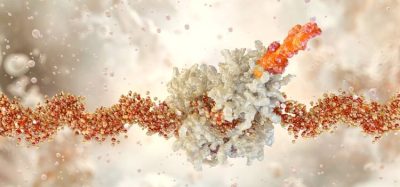mRNA vaccine research worth $500m cut by RFK Jr
Posted: 6 August 2025 | Dominic Tyer (European Pharmaceutical Review) | No comments yet
HHS throws out Pfizer, CSL Seqirus and Sanofi proposals, and will restructure AstraZeneca and Moderna projects.


The US is making swinging mRNA development cuts, hugely deprioritising a Nobel Prize-winning field of research widely lauded for its role in helping tackle COVID-19.
The Department of Health and Human Services (HHS) will cancel and descope 22 mRNA investments worth nearly $500 million in work against diseases such as flu and COVID.
The cull will see the rejection or cancellation of proposals submitted to the Biomedical Advanced Research and Development Authority (BARDA) from companies such as Pfizer, CSL Seqirus and Sanofi .
Meanwhile, nucleic acid-based vaccine projects being run by firms including AstraZeneca and Moderna will be restructured.
HHS said its “coordinated wind-down” of BARDA-supported mRNA vaccine development activities comes after investments started during the pandemic were reviewed.
mRNA vaccines have several benefits compared to other types of vaccines, including shorter manufacturing times”
HHS Secretary Robert F Kennedy Jr, a vaccine sceptic, said his department would be “moving beyond the limitations of mRNA and investing in better solutions”.
However, the HHS’ own website currently notes that mRNA vaccine technology, as used in COVID vaccines from Pfizer-BioNTech and Moderna, has been studied for decades.
“mRNA vaccines have several benefits compared to other types of vaccines, including shorter manufacturing times and, because they do not contain a live virus, no risk of causing disease in the person getting vaccinated,” it says.
mRNA research and equity investments to be cut
The HHS cuts will also see contracts with Emory University and Tiba Biotech terminated and mRNA-related work in contracts with Luminary Labs, ModeX and Seqirus taken out of their scope.
HHS has also instructed the Global Health Investment Corporation (GHIC), which manages BARDA Ventures, to cease any further mRNA-based equity investments.
However, HHS said that work already in its final stages by companies such as Arcturus and Amplitude will be allowed to finish to “preserve prior taxpayer investment” and that other uses of mRNA technology by the department would not impacted by the current announcement.
Award-winning mRNA research
The development of effective mRNA vaccines against COVID was enabled by work from Katalin Karikó and Drew Weissman on nucleoside base modifications. That research led to the duo picking up the 2023 Nobel Prize in Physiology or Medicine.
Commenting on that award, which is handed to scientists who have made the most important discoveries for the benefit of humankind, the Nobel Assembly said in 2023: “Through their groundbreaking findings, which have fundamentally changed our understanding of how mRNA interacts with our immune system, the laureates contributed to the unprecedented rate of vaccine development during one of the greatest threats to human health in modern times.”









